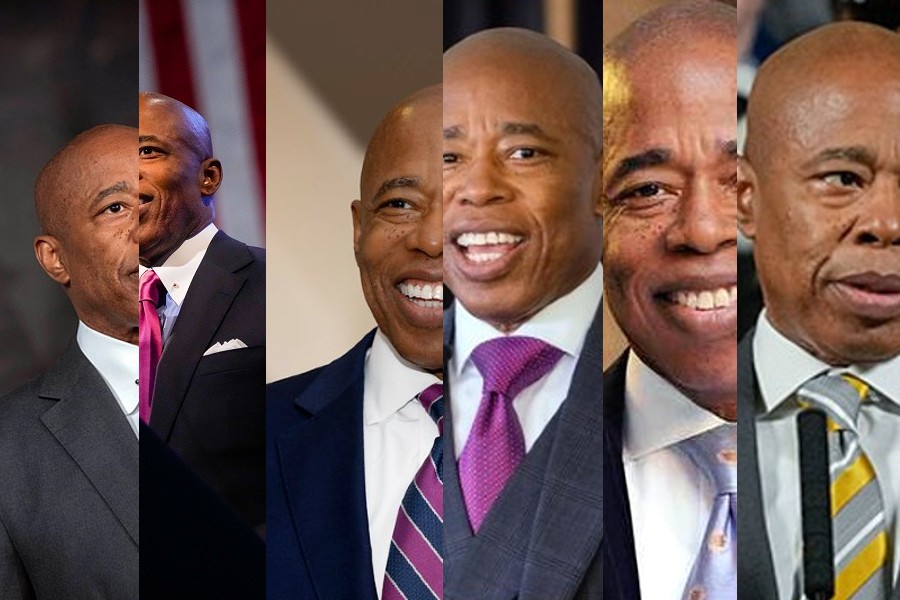
Harlem’s Brian Benjamin and Senate Democratic Majority this week passed legislation to expand protections from wage discrimination for public employees.
The legislation will ensure equal pay for equal work for public employees with protected class status and prohibit salary history inquiries to prevent the cycle of wage discrimination.
“New York State must be a beacon to the rest of the nation in fighting for equal pay for equal work,” Senate Majority Leader Andrea Stewart-Cousins said. “The bills passed this week will protect employees from wage discrimination and end the practice of salary history requests. I applaud Senator Velmanette Montgomery, Harlem Senator Brian Benjamin, Senator David Carlucci, and Senator Alessandra Biaggi for championing these bills and working to build a stronger and fairer New York.”
According to the New York State Department of Labor, women earn 89 cents to each dollar earned by men in New York. This gap is more pronounced among women of color, with data showing that African American women earn63 cents for every dollar and Latinx women earn 54 cents for every dollar.
The legislation passed by the Senate Democratic Majority includes:
- Equal Pay for All: This bill, S.5248B, sponsored by Senator Alessandra Biaggi, prohibits a differential rate of pay based on protected class status. Current law prohibits a differential rate of pay based on gender. Protected class status is defined as age, creed, race, color, national origin, sexual orientation, gender identity or expression, military status, sex, disability, predisposing genetic characteristics, familial status, marital status, or domestic violence victim status. This bill also lessens the burden of proving wage discrimination by requiring employers to ensure equal pay for substantially similar work in addition to the equal pay work standard.
- Fair and Non-Biased Compensation for Protected Classes: This bill, S.456B, sponsored by Senator Brian Benjamin, establishes a policy of equal pay for all public sector employees on the basis of protected class status and creates a private right of action for public employees to ensure that public employees have a mechanism to enforce their right to equal pay for equal and equivalent work.
- Banning Salary History Inquiries: This bill, S.6549, sponsored by Senator David Carlucci, prohibits employers from asking prospective employees for wage and salary history as a requirement for a job interview, job application, job offer, or promotion. This legislation also prohibits retaliation by an employer against a prospective employee based on the employee’s refusal to provide salary or wage history.
- Equal Pay for Public Employees: This bill, S. 6436, sponsored by Senator Velmanette Montgomery, will implement a state policy to ensure that public employees receive fair and equal pay for substantially similar work. The bill provides that the policy be extended even in cases where employees have different titles, but analysis reveals that the jobs are equivalent.
Bill Sponsor, Harlem Senator Brian Benjamin said, “When my mother came to this country seeking a better life for her future family, it was a union job in public service that gave her that opportunity. That opportunity put her on equal footing with her peers, and though the way was not always easy, she was able to build a solid life for my siblings and I. I want every New Yorker, regardless of gender, color, creed, orientation, or place of origin to have the opportunity she did, and so I am proud to be the sponsor of a bill to affirm those rights for civil service employees, and give them recourse when those rights are violated.”
Bill Sponsor, Senator Alessandra Biaggi said, “Every New Yorker deserves equal pay for equal work regardless of race, sexual orientation, disability, or how they choose to identify. My bill to amend the labor law in relation to prohibiting wage differentials based on protected class status will address the systemic issue of pay discrimination plaguing marginalized communities across the state. This is a first step towards closing the pervasive wage gap in New York State, and solidifying the principle of equal opportunity for all.”
Bill Sponsor, Senator David Carlucci said, “Women make up nearly half the workforce and still are paid less than men for the same jobs in 2019, and it’s wrong. Women make about 80 cents for every dollar a man brings in, and for women of color it’s even less. We must close the gender pay gap, starting with legislation I sponsor to ban the salary history question. This question only perpetuates the problem. Gender equality starts with fair pay.”
Bill Sponsor, Senator Velmanette Montgomery said, “The pervasive wage gap keeps New York’s women sidelined, despite the progress we have made in the fight to make New York State a more equal and equitable state. My legislation will help close the wage gap by implementing a state policy that will ensure that public employees receive fair and equal pay for equal work. I want to thank Senate Majority Leader Andrea Stewart-Cousins for taking up this legislation and ensuring its passage.”
Become a Harlem Insider!
By submitting this form, you are consenting to receive marketing emails from: . You can revoke your consent to receive emails at any time by using the SafeUnsubscribe® link, found at the bottom of every email. Emails are serviced by Constant Contact








